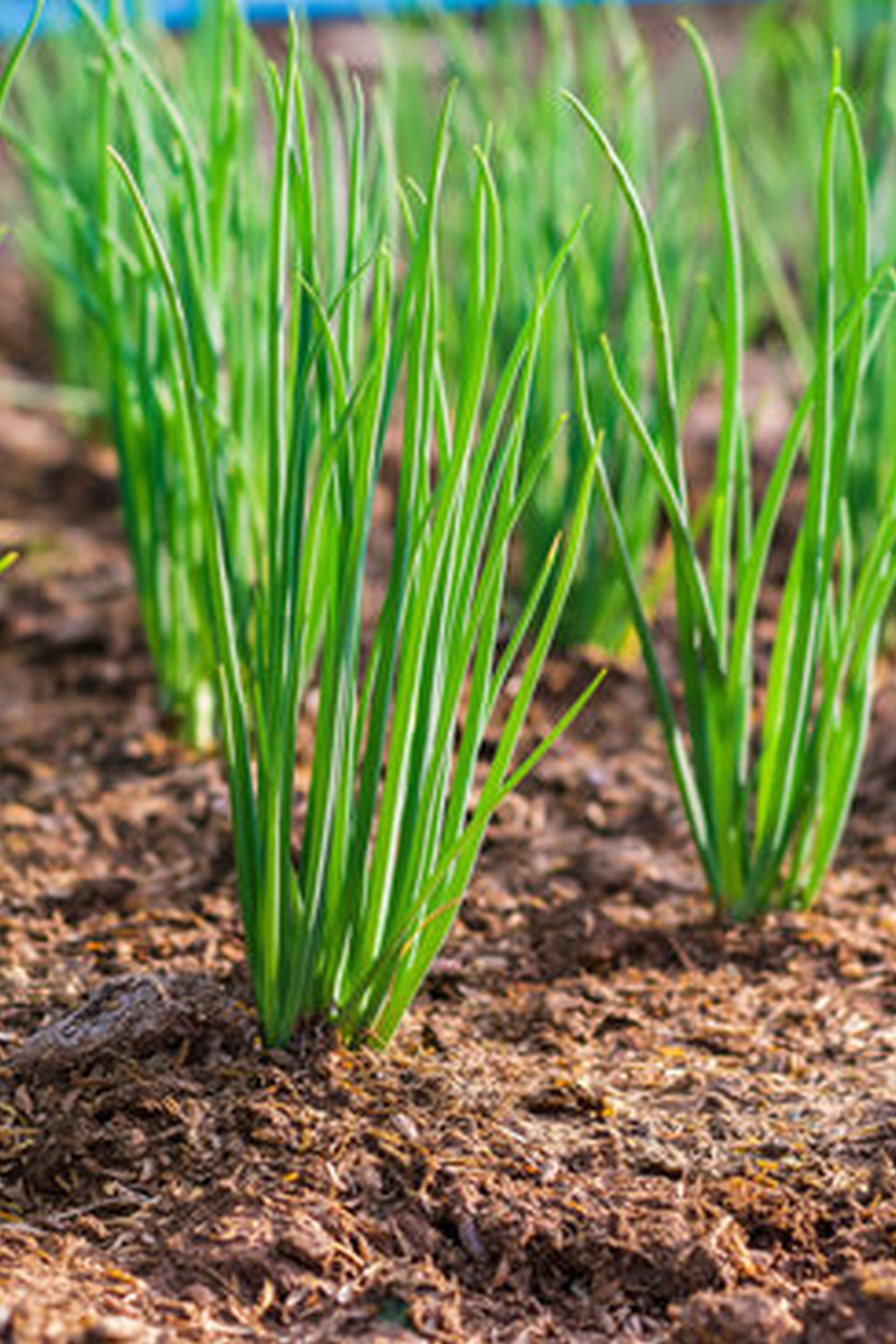Protecting vegetable gardens from insects is crucial in maintaining the health and productivity of your plants. Insects can devastate a garden, causing damage to crops and hindering growth. Whether you’re a seasoned gardener or just starting out, understanding how to prevent and control insect infestations is essential for a successful harvest.
Common pests that pose a threat to vegetable gardens include aphids, caterpillars, beetles, and mites. These insects feed on plant tissues, sap, or fruits, leading to stunted growth, wilting leaves, and decreased yields. Recognizing the signs of insect damage early on can help you take the necessary steps to protect your plants before it’s too late.
Luckily, there are various natural methods for controlling insect infestations in vegetable gardens. From introducing beneficial insects like ladybugs and lacewings to implementing homemade insecticidal soaps and neem oil sprays, there are eco-friendly ways to combat pests without harming the environment or your crops. By prioritizing organic practices and integrating companion planting techniques, you can create a balanced ecosystem that deters harmful insects while promoting the health of your vegetable garden.
Common Pests That Attack Vegetable Gardens
Pests can wreak havoc on vegetable gardens if left unchecked, causing damage to crops and reducing yields. Recognizing the common pests that attack vegetable gardens is the first step in effectively protecting your plants from harm. By understanding their habits and characteristics, you can implement targeted strategies to keep them at bay.
Here are some of the most common pests that may threaten your vegetable garden:
- Aphids: These small, soft-bodied insects feed on plant sap, causing leaves to curl and yellow. They reproduce quickly and can be found in large colonies.
- Caterpillars: The larvae of butterflies and moths, caterpillars chew on leaves and can defoliate plants if not controlled.
- Whiteflies: These tiny insects suck plant juices, leading to stunted growth and the spread of viral diseases.
Knowing how to identify these pests and their damage will help you take timely action to protect your vegetable garden. Regular monitoring of your plants for signs of infestation is key to early detection and intervention.
Implementing natural methods for controlling insect infestations is a proactive way to safeguard your vegetable garden without resorting to chemicals. By encouraging beneficial insects that prey on harmful pests or using organic solutions like neem oil or insecticidal soap, you can effectively manage pest populations while minimizing environmental impact.
Signs of Insect Damage in Vegetable Plants
Insect damage in vegetable plants can range from subtle signs to more noticeable symptoms that can greatly affect the health and yield of the garden. One common indicator of insect infestation is the presence of holes or notches on leaves, which can be caused by pests like caterpillars, beetles, or grasshoppers. Additionally, wilting or yellowing of leaves, stunted growth, and distorted fruits or vegetables are all signs that insects may be feeding on your plants.
Another tell-tale sign of insect damage is the presence of sticky substances or sooty mold on plant surfaces. This can indicate the presence of aphids, scale insects, or whiteflies, which excrete a sugary substance known as honeydew as they feed on plant sap. The honeydew can attract ants and promote the growth of black sooty mold on leaves.
It’s crucial for gardeners to regularly inspect their vegetable plants for any signs of insect damage in order to take action promptly and prevent further harm. By implementing integrated pest management strategies that include natural methods, chemical options (used as a last resort), companion planting techniques, and physical barriers like row covers, gardeners can protect their vegetable gardens from insects while minimizing harm to beneficial insects in the ecosystem.
| Signs of Insect Damage | Common Pests |
|---|---|
| Holes or notches on leaves | Caterpillars, beetles, grasshoppers |
| Wilting or yellowing leaves | Variety based: |
| Sticky substances/sooty mold | Aphids, scale insects, whiteflies |
Natural Methods for Controlling Insect Infestations in Vegetable Gardens
When it comes to protecting vegetable gardens from insects, employing natural methods for insect control can be an effective and environmentally friendly approach. One common technique is planting companion plants that naturally deter pests. For example, marigolds are known to repel a variety of insects such as aphids, nematodes, and tomato hornworms. Additionally, planting herbs like basil and mint can help to keep certain pests at bay while also adding fragrance and flavor to your garden.
Another natural method for controlling insect infestations is introducing beneficial insects into your garden. Ladybugs, lacewings, and parasitic wasps are examples of beneficial insects that prey on common garden pests like aphids, caterpillars, and mites. By attracting these helpful bugs to your garden through the use of specific plants or insectaries, you can create a more balanced ecosystem that naturally regulates pest populations without the need for harmful chemicals.
Furthermore, practicing good cultural techniques can also play a significant role in preventing insect infestations in vegetable gardens. This includes proper watering and soil management to ensure the health and vigor of your plants, making them less susceptible to pest damage. Crop rotation is another useful strategy as it helps disrupt the life cycles of many pests, reducing their overall numbers in the long term.
| Beneficial Insects | Companion Plants |
|---|---|
| Ladybugs | Marigolds |
| Lacewings | Basil |
| Parasitic Wasps | Mint |
Chemical Options for Insect Control in Vegetable Gardens
Types of Chemical Insecticides
Chemical insecticides are a common method used to control insect infestations in vegetable gardens. There are various types of chemical options available, including synthetic chemicals and organic pesticides. Synthetic chemicals, such as pyrethroids and neonicotinoids, are effective at quickly killing insects but may have harmful effects on beneficial insects and the environment. On the other hand, organic pesticides derived from natural sources like plants or minerals offer a safer alternative for protecting vegetable gardens while minimizing environmental impact.
Application of Chemical Insecticides
When using chemical insecticides in vegetable gardens, it is crucial to read and follow the instructions provided by the manufacturer carefully. Always apply the pesticide during calm weather to prevent drift and minimize exposure to non-target organisms.
It is also essential to wear protective clothing, gloves, and a mask when applying chemical insecticides to protect yourself from potential hazards. Additionally, be mindful of the pre-harvest intervals specified on the product label to ensure that there are no residues left on the vegetables when they are ready for consumption.
Considerations for Safely Using Chemical Insect Control
While chemical insecticides can be effective in controlling pest populations in vegetable gardens, they should be used as a last resort after exhausting natural and cultural control methods. Before applying any chemical options for insect control, assess the severity of the infestation and consider whether more environmentally friendly alternatives are available.
It is crucial to strike a balance between effectively managing pests and protecting ecosystem health by using chemical insecticides judiciously and responsibly. Regular monitoring of your garden for signs of pest activity will also help you make informed decisions about when and how to use chemical options for protecting your vegetable plants from insects.
Companion Planting to Deter Insects From Vegetable Gardens
Companion planting is a popular and effective method for deterring insects from vegetable gardens. By strategically planting certain plants together, you can naturally repel pests and protect your valuable crops. Here are some common companion planting combinations to help keep insects at bay:
- Planting marigolds alongside vegetables such as tomatoes, peppers, and squash can deter aphids, nematodes, and whiteflies. Marigolds emit a strong scent that repels these common garden pests.
- Growing basil near your tomato plants can help ward off hornworms and mosquitoes. The strong aroma of basil confuses insect pests and makes it difficult for them to locate their desired host plants.
- Intercropping garlic or chives with carrots, cabbage, or broccoli can help repel carrot flies, cabbage worms, and aphids. These allium plants release compounds that insects find unappealing.
In addition to specific plant combinations, incorporating flowers such as lavender, dill, or yarrow throughout your vegetable garden can attract beneficial insects like ladybugs, lacewings, and parasitic wasps. These good bugs prey on common garden pests, helping to naturally control insect populations without the need for harmful chemicals.
Using companion planting techniques not only helps protect vegetable gardens from insects but also promotes biodiversity and creates a visually appealing landscape. By harnessing the power of plant relationships in your garden, you can enjoy bountiful harvests while maintaining a healthy balance between pests and beneficial insects.
Remember that while companion planting is a valuable tool for insect control in vegetable gardens, it is essential to also practice good gardening habits such as crop rotation, proper watering techniques, and regular plant inspections to ensure the overall health of your garden ecosystem. By taking a holistic approach to garden maintenance and incorporating companion planting strategies, you can create a thriving vegetable garden that is resilient against insect infestations.
Physical Barriers to Keep Insects Away From Vegetable Plants
Physical barriers are an effective method for protecting vegetable gardens from insects. These barriers act as a physical deterrent, preventing pests from reaching your precious plants and causing damage. By implementing these barriers, gardeners can create a protective barrier around their vegetable plants, keeping insects at bay without the need for harmful chemicals or pesticides.
Types of Physical Barriers
There are several types of physical barriers that can be used to protect vegetable gardens from insect infestations. One common method is the use of row covers, which are lightweight, breathable fabrics that can be draped over plants to create a shield against pests.
Another option is netting, which can be hung over plants or even used as a fencing material to keep out larger pests like birds or rabbits. Additionally, installing fences or mesh around the perimeter of the garden can help prevent insects from entering and feasting on your vegetables.
Benefits of Using Physical Barriers
One of the key benefits of using physical barriers to protect vegetable gardens from insects is their non-toxic nature. Unlike chemical pesticides, physical barriers do not pose any harm to the environment, wildlife, or humans.
Additionally, these barriers offer a long-lasting solution to insect problems, as they can be reused season after season with proper care and maintenance. By incorporating physical barriers into your gardening routine, you can enjoy healthy and thriving vegetable plants without the worry of pest infestations ruining your harvest.
Tips for Maintaining a Healthy Garden Ecosystem to Naturally Repel Insects
Maintaining a healthy garden ecosystem is crucial when it comes to protecting vegetable gardens from insects. By creating a balanced and diverse environment, you can naturally repel pests and reduce the need for chemical interventions. One key tip for promoting a healthy garden ecosystem is to encourage beneficial insects that prey on pest species. Ladybugs, lacewings, and parasitic wasps are just a few examples of beneficial insects that can help keep pest populations in check.
Another important aspect of maintaining a healthy garden ecosystem is to practice proper crop rotation and intercropping techniques. By rotating crops each season and planting different types of vegetables together, you can disrupt the life cycles of pests and prevent them from building up large populations. Additionally, incorporating cover crops into your garden plan can improve soil health, attract beneficial insects, and provide habitat for natural predators.
In addition to attracting beneficial insects and practicing good crop management techniques, it’s also essential to avoid over-fertilizing your vegetable plants. Excessive fertilization can lead to rapid plant growth, making them more susceptible to insect damage.
Instead, focus on providing the necessary nutrients through organic amendments and compost to promote strong, healthy plants that are better able to defend themselves against pests. By following these tips for maintaining a healthy garden ecosystem, you can create a thriving environment that naturally repels insects while promoting the overall health of your vegetable garden.
Conclusion Emphasizing the Significance of Proactive Insect Prevention in Vegetable Gardens
In conclusion, it is evident that protecting vegetable gardens from insects is crucial in ensuring a bountiful harvest and healthy plants. The presence of common pests such as aphids, caterpillars, and beetles can wreak havoc on a garden if left uncontrolled. By being vigilant for signs of insect damage like holes in leaves, wilting plants, or visible pests, gardeners can take proactive measures to address the issue promptly.
Using natural methods such as neem oil, diatomaceous earth, or introducing beneficial insects like ladybugs can help control insect infestations organically without harming the environment or beneficial insects. Additionally, employing companion planting techniques by incorporating plants that repel harmful insects or attract predatory insects can create a harmonious ecosystem that naturally deters pests.
By implementing physical barriers like row covers, netting, or even hand-picking pests off plants, gardeners can prevent insects from causing extensive damage to their vegetable crops. It is essential to maintain a healthy garden ecosystem by practicing proper crop rotation, providing adequate drainage and sunlight, and avoiding overcrowding plants.
Overall, the best defense against insect invasions in vegetable gardens is a proactive approach that combines natural methods with chemical options when necessary to protect vegetable gardens from pests efficiently and effectively.
Frequently Asked Questions
What Can I Use to Keep Bugs Off My Vegetable Garden?
To keep bugs off your vegetable garden, you can use natural remedies like neem oil, diatomaceous earth, or garlic spray. Planting companion plants like marigolds and basil can also help deter pests without the use of chemicals.
How Do I Pest Proof My Garden?
Pest-proofing your garden involves several strategies to prevent insects from damaging your crops. Start by practicing good garden hygiene, removing debris and weeds that attract pests. Using row covers, installing physical barriers like fences or netting, and rotating crops can also help protect your garden from unwanted pests.
What Is the Best Bug Repellent for Vegetables?
The best bug repellent for vegetables is one that is safe for consumption and effective at keeping pests at bay. Look for products containing ingredients like pyrethrin, spinosad, or insecticidal soap that are approved for use on edible plants. Additionally, planting pest-repelling herbs like peppermint or lavender near your vegetables can provide a natural deterrent against bugs.

If you’re looking to get into vegetable gardening, or are just looking for some tips on how to make your current garden better, then you’ve come to the right place! My name is Ethel and I have been gardening for years. In this blog, I’m going to share with you some of my best tips on how to create a successful vegetable garden.





